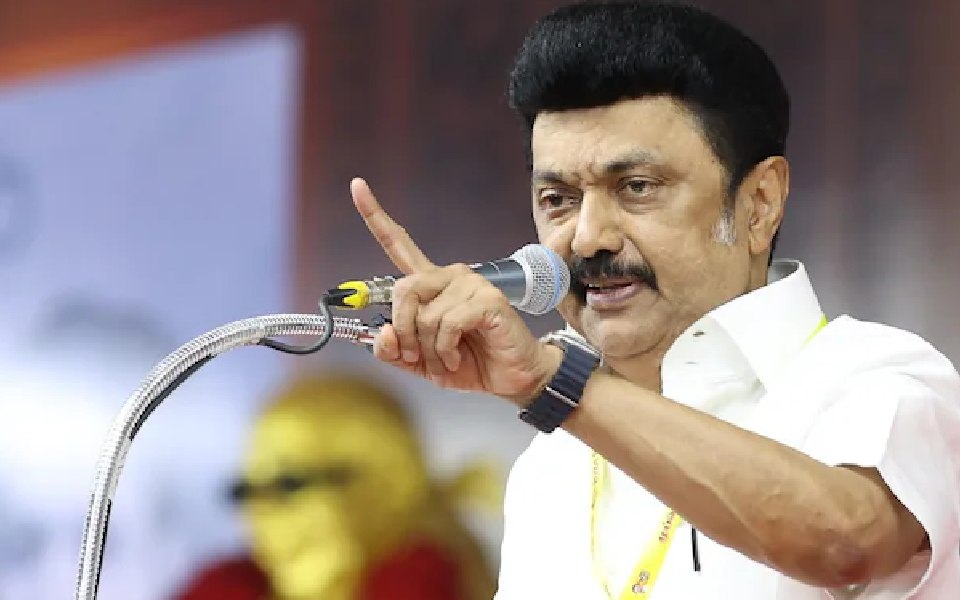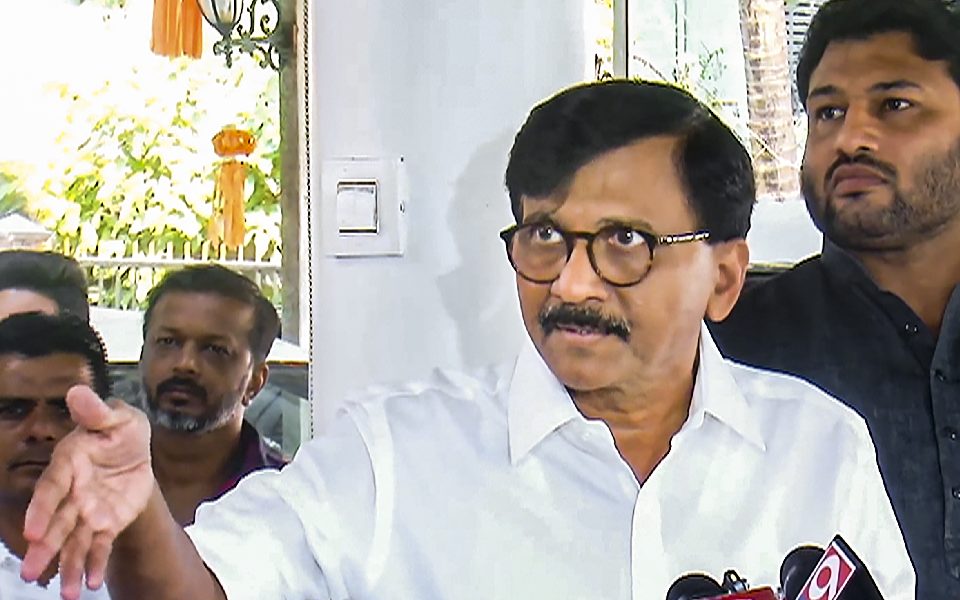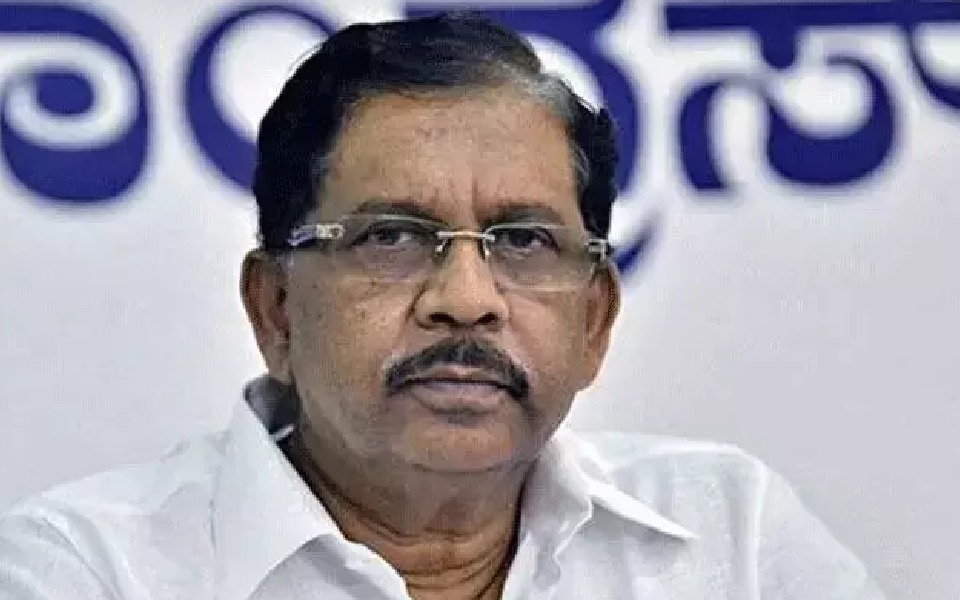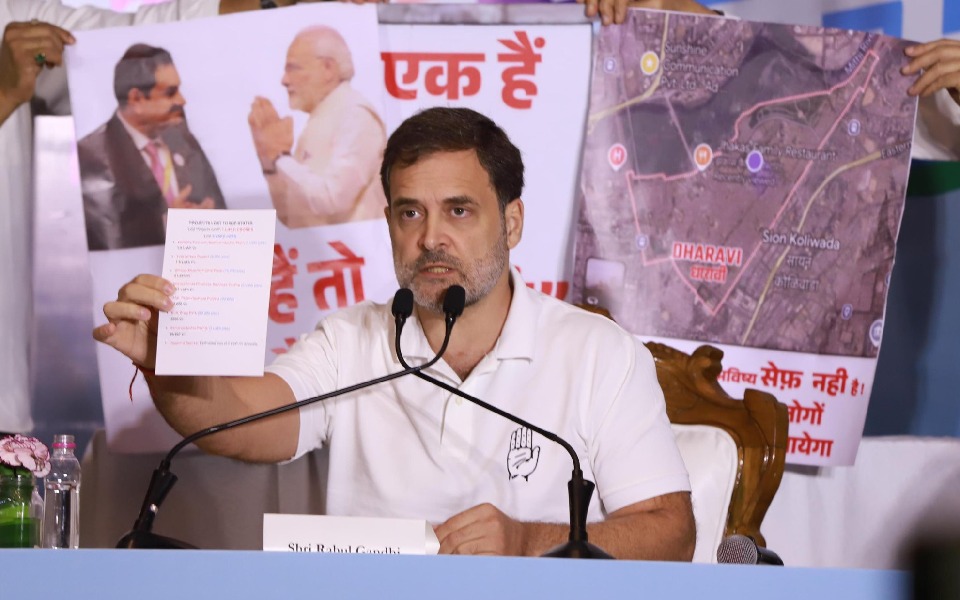Chennai, Oct 21: The Lok Sabha delimitation exercise may make people to think about raising "16 children," Tamil Nadu Chief Minister M K Stalin said on Monday, alluding to a Tamil saying on 16 kinds of wealth but insisted that one should give Tamil names to their kids.
He was alluding to a Tamil saying "pathinarum petru peru vazhvu vazhga," meaning acquire 16 different kinds of wealth and lead a prosperous life, while referring to the census and delimitation process which will redraw the electoral map of India.
Stalin said newly wedded couples may give up the idea of begetting few children now.
"The Parliament delimitation process may encourage the couples to have many children and give up thoughts of a small family. But whatever be the outcome, provide Tamil names to your children," the CM said after solemnising the marriages of 31 couples at a function held under the aegis of the Hindu Religious and Charitable Endowments department here.
In the past, the elders used to bless the newly married couples to acquire 16 kinds of wealth (pathinarum petru peru vazhvu vazhga) including fame, education, lineage, wealth, etc., and not 16 children. Gradually, people have come to believe in raising a small family for prosperity, he said.
"That blessing doesn't mean beget 16 children… now a situation has arisen where people think they should now literally raise 16 children and not a small and prosperous family," Stalin said.
Let the Truth be known. If you read VB and like VB, please be a VB Supporter and Help us deliver the Truth to one and all.
Mumbai, Nov 25: Shiv Sena (UBT) MP Sanjay Raut on Monday demanded a re-election in Maharashtra using ballot papers, claiming there were irregularities with the electronic voting machines (EVMs).
Talking to reporters, Raut alleged several complaints about EVMs malfunctioning and questioned the integrity of the recently held elections.
The BJP-led Mahayuti won 230 out of 288 seats in the assembly elections, while the opposition Maha Vikas Aghadi managed 46 seats, with Shiv Sena (UBT) winning just 20 out of 95 seats it contested.
"We have received nearly 450 complaints regarding EVMs. Despite raising objections repeatedly, no action has been taken on these issues. How can we say these elections were conducted fairly? Hence, I demand that the results be set aside and elections be held again using ballot papers," Raut said.
Citing some instances, he said a candidate in Nashik reportedly received only four votes despite having 65 votes from his family, while in Dombivli, discrepancies were found in EVM tallies, and election officials refused to acknowledge the objections.
The Sena (UBT) leader also questioned the credibility of the landslide victories of some candidates, saying, "What revolutionary work have they done to receive more than 1.5 lakh votes? Even leaders who recently switched parties have become MLAs. This raises suspicions. For the first time, a senior leader like Sharad Pawar has expressed doubts about EVMs, which cannot be ignored."
Asked about the MVA's poor performance in the elections, Raut rejected the idea of blaming a single individual.
"We fought as a united MVA. Even a leader like Sharad Pawar, who commands immense respect in Maharashtra, faced defeat. This shows that we need to analyse the reasons behind the failure. One of the reasons is EVM irregularities and the misuse of the system, unconstitutional practices, and even judicial decisions left unresolved by Justice Chandrachud," he said.
Raut stressed that though internal differences might have existed within the MVA, the failure was collective.
He also accused the Mahayuti of conducting the elections in an unfair manner.
"I cannot call the elections fair given the numerous reports of discrepancies in EVMs, mismatched numbers, and vote irregularities across the state," Raut said.





